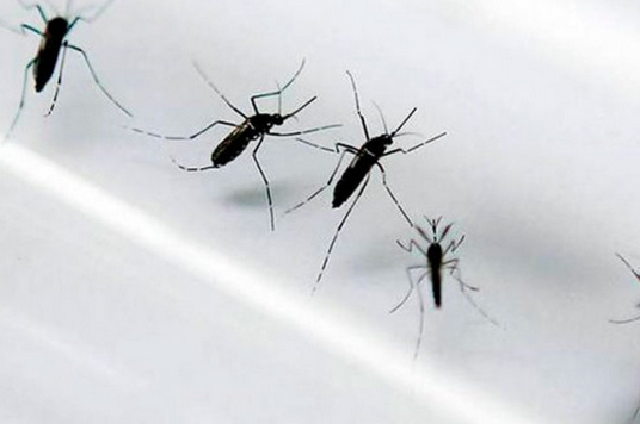The Zika Virus Invasion and how to fight it
Unfortunately, we know little about it

I attended two fascinating lectures at a local biosafety conference this week.
The first talk addressed “The Zika Virus Invasion” and the second revealed a potential new weapon to control the spread of the pathogen that has been linked to birth defects and neurological disorders.
The Scripps Research Institute’s Biosafety Officer, Dr. Laurence Cagnon, focused on entirely on the Zika Virus in her intriguing talk. The expert on virology and microbiology discussed the history of Zika research and reviewed recommendations for working with infected samples and mosquitoes safely.
“We are still limited about what we actually know about Zika,” said Cagnon. “The recommendations are to treat Zika as guilty until proven innocent”.
Cagnon noted that before the outbreak in Brazil was widely reported, along with the associated microcephaly birth defects, only 171 professional articles mentioned the Zika Virus. In comparison, thousands were available on other well-known mosquito-borne diseases (including several I have covered here, including dengue fever, chikungunya, and Ebola).
“The recommendations are to take a very conservative approach to Zika, for the time being,” said Cagnon. “There are now many studies that will be coming out, and we will review what is known again in June, and then re-evaulate.”
Cagnon remarked that there are no true experts on Zika. However, if one had to be named, she indicated that it would be Colorado State University Professor Brian Foy, who contracted the Zika Virus 8 years ago when he was was in southeastern Senegal collecting mosquitoes for research.
When we got back, I was fine,” said Foy. “I was happy to see my wife, Joy, my four kids and everyone. It wasn’t until approximately 10 days after we left the villages that I started feeling ill.”
It began with a rash on his back and torso, headache, light sensitivity and ever-worsening joint pain and swelling.
“My wrists, ankles and my thumb joints in particular definitely got worse,” Foy said. “I remember very specifically after a whole week had passed, it really hit me. I just needed to cover my eyes and lay down. I was really tired.”
Foy ended up sexually transmitting the virus to his wife, Chilson Foy, a registered oncology nurse. Because both are scientists, they recorded symptoms and saved blood samples, and eventually deduced the nature of the infection that had hit them hard.
Carefully titled “Probable Non-Vector-borne Transmission of Zika Virus,” the paper came out in May 2011 in the Journal of Emerging Infectious Diseases. While Foy, his wife and Kobylinski are listed as authors, their identities are disguised as Patient One, Patient Two and Patient Three to protect their privacy, something extremely important to Chilson Foy. However, it wasn’t long before Foy, never one to dissemble, was outed.
Another of the speakers at the event I attended was University of California San Diego biology professor, Dr. Ethan Bier. He reviewed his research on gene editing and its potential safety consequences. The new technology developed in his lab has many potential applications, such as fighting Zika by making mosquitoes resistant to the virus.
I would also like to mention that other alternative approaches are already being developed. A Canadian-led research team has developed pheromone-treated tires to capture, then destroy, eggs of the pathogen-bearing mosquitoes.
Meanwhile, American research continues aggressively. Hopefully, there will be significant breakthroughs in both the understanding of the virus and how to fight it by June, the start of mosquito season.
Donations tax deductible
to the full extent allowed by law.








Comments
Now that Zika is here, the only proper thing to do is to own up to it, provide education and healthcare and a path to citizenship.
We’ve known how to fight mosquito borne viruses for decades. It’s called DDT. Instead millions have died because we banned it over a work of fiction.
Millions of human deaths and millions more suffering from disease and all because it makes idiots feel better.